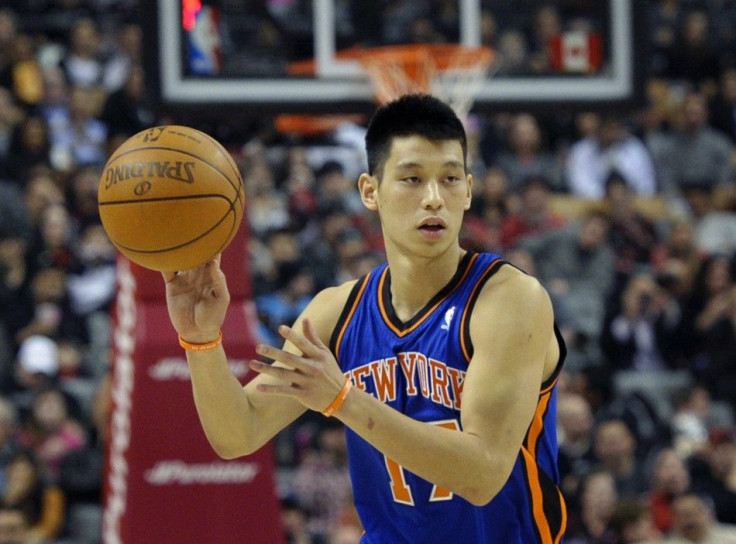Jeremy Lin: The Americanization of Lin Shu-Hao
OPINION

A Chinese-American friend of mine explained to me recently why New York Knicks point guard Jeremy Lin means more to him than Yao Ming, the Chinese center who burst onto the NBA almost a decade ago.
“I loved Yao, don’t get me wrong,” he said. “As happy as I was that a prominent Chinese player was in the league, Yao was something like 7-foot-5 and he came from Shanghai, a place I’ve never even seen.”
In contrast, my friend said, Lin is an American kid (raised in California), “he’s more of a normal height and he plays the game the American way.”
Yao, at least in his first few years, played too passively and he seemed reluctant to speak in English.
“Jeremy Lin is more like us Chinese-Americans. He has no foreign accent at all. He’s part of American culture and he means much more than Yao,” my friend added.
Indeed, part of Lin’s massive appeal is that he’s not really that “foreign,” or ”foreign” at all. In fact, he is just as “American” as Peyton Manning, Tom Brady or Kobe Bryant.
However, since he is of Asian descent (an ethnic group that has been woefully under-presented in American sports), his ancestry become a paramount factor in his ever-escalating popularity and significance.
Perhaps a key part of Lin’s direct appeal is his first name – Jeremy, which is actually of Hebrew origin and a variation of Jeremiah. In recent centuries, the name has been quite popular in Great Britain, the United States’ “Mother Country.”
However, Jeremy Lin’s Chinese name is “Lin Shu Hao.” I am not certain what name appears on his birth certificate, but many Asian-American parents give their children two different first names, one “Asian” and one “Western.” I think it’s up to them what they want to be called when they enter school and the workforce.
Hence, we see names like Wayne Wang (Hollywood director); Steve Chen (YouTube co-founder); Jerry Yang (Yahoo co-founder), Rosalind Chao (actress); Anna Sui (fashion designer); and Connie Chung (TV news broadcaster); among many others.
Which leads me to wonder…. would Lin’s popularity and appeal in the United States be compromised if he went by the name of “Shu Hao Lin”? In addition, might Yao Ming have achieved even greater acclaim if he went by, say, “John Yao” or “Robert Yao” (Yao is the surname).
I have noticed that many of the English-language news stories about Jeremy Lin that come from Chinese and Taiwanese sources usually identify him as “Lin Shu Hao” (completely bypassing the “Jeremy” part and placing the surname in front, per Chinese custom).
In addition, Lin is a devout Christian -- perhaps this too makes him a bit more palatable to the broader U.S. public (a country that remains predominantly Christian). Indeed, Jeremiah in Hebrew means God is great.
Jeremy Lin’s popularity and fame has now probably eclipsed any issues related to his name. But what about the millions of ordinary Asian-Americans who have to deal with their cultural confusions on a day-to-day basis?
As a person of Indian descent, I have also faced this dilemma about names. Indeed, I always wondered if my life would have been easier if I Anglicized my first name to “Paul” or “Patrick” or something similar.
I have seen Indians often use English first names in order to make their assimilation into US and UK society easier. Thus, ”Vikram” became “Victor,” “Samarjit” became ”Sam” – and in one bizarre case, the surname “Kapoor” actually became “Cooper”!
Also, keep in mind that the two most prominent Indian-Americans, governor Bobby Jindal (Louisiana) and governor Nikki Haley (South Carolina) have both Anglicized parts of their names and adopted Christianity. Jindal's real first name in Piyush and he was born to a Hindu family. Haleywas actually born Nimrata Nikki Randhawa to a Sikh family (she uses her married surname).
I'm not certain that a Hindu fellow named Piyush Jindal or a Sikh woman named Nimrata Randhawa would have ever been elected governors of Louisiana and South Carolina, respectively.
In any case, the biggest star in American sports now is a lad named “Lin Shu Hao” -- who would have ever thought such a thing was possible?
© Copyright IBTimes 2024. All rights reserved.





















